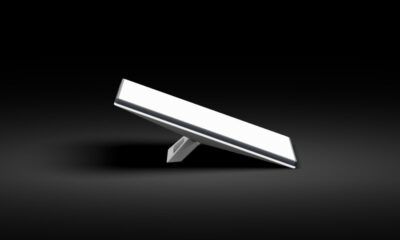News
Japan Sets A New Internet Speed Record With 319 Terabits Per Second
That’s around 7.6 million times faster than the internet connection you probably have at home.

Don’t you sometimes wish your internet speed was a bit faster when browsing the web, streaming online content, playing multiplayer games, or participating in a video conference? Most people do, including scientists at Japan’s National Institute of Information and Communications Technology (NICT). Recently, NICT set a new internet speed record when a group of its scientists successfully transferred data at 319 Terabits per second (Tbps) over a simulated 3,001-kilometer distance.
To put the record-breaking data transfer speed into perspective, the average fixed broadband download speed worldwide currently sits around 100 Mbps, which is around 3 million (yes, million) times slower. The new record is a significant achievement even as far as internet speed records go because it’s almost double the previous world record (179 Tbps), which was achieved by British and Japanese researchers in August 2020.
Transmitting data at such an unimaginably fast speed required plenty of innovation and cutting-edge technologies. Whereas typical fiber-optic cables have just one core designed for light transmission, the cable used by the team of Japanese researchers who set the new record had four cores. The transmitted data was fired using a 552-channel comb laser at multiple wavelengths and given a boost by rare earth amplifiers.
Since the entire test took place under laboratory conditions, you shouldn’t expect your local internet service provider to follow suit in the near future by implementing similar technologies due to their cost. The most likely real-world applications of the cutting-edge system involve high-speed backbone communication.
Also Read: Super Fast 6G Connectivity Is Closer Than You Think
“It is hoped that such fibers can enable practical high data-rate transmission in the near-term, contributing to the realization of the backbone communications system necessary for the spread of new communication services beyond 5G,” write NICT researchers.
Considering how much we’ve progressed since Caltech set its 186 Gbps internet speed record in 2011, we can’t help but imagine where we’ll be in another decade or two.
News
Samsung Smart Glasses Teased For January, Software Reveal Imminent
According to Korean sources, the new wearable will launch alongside the Galaxy S25, with the accompanying software platform unveiled this December.

Samsung appears poised to introduce its highly anticipated smart glasses in January 2025, alongside the launch of the Galaxy S25. According to sources in Korea, the company will first reveal the accompanying software platform later this month.
As per a report from Yonhap News, Samsung’s unveiling strategy for the smart glasses echoes its approach with the Galaxy Ring earlier this year. The January showcase won’t constitute a full product launch but will likely feature teaser visuals at the Galaxy S25 event. A more detailed rollout could follow in subsequent months.
Just in: Samsung is set to unveil a prototype of its augmented reality (AR) glasses, currently in development, during the Galaxy S25 Unpacked event early next year, likely in the form of videos or images.
Additionally, prior to revealing the prototype, Samsung plans to introduce…
— Jukanlosreve (@Jukanlosreve) December 3, 2024
The Galaxy Ring, for example, debuted in January via a short presentation during Samsung’s Unpacked event. The full product unveiling came later at MWC in February, and the final release followed in July. Samsung seems to be adopting a similar phased approach with its smart glasses, which are expected to hit the market in the third quarter of 2025.
A Collaborative Software Effort
Samsung’s partnership with Google has played a key role in developing the smart glasses’ software. This collaboration was first announced in February 2023, with the device set to run on an Android-based platform. In July, the companies reiterated their plans to deliver an extended reality (XR) platform by the end of the year. The software specifics for the XR device are expected to be unveiled before the end of December.
Reports suggest that the smart glasses will resemble Ray-Ban Meta smart glasses in functionality. They won’t include a display but will weigh approximately 50 grams, emphasizing a lightweight, user-friendly design.
Feature Set And Compatibility
The glasses are rumored to integrate Google’s Gemini technology, alongside features like gesture recognition and potential payment capabilities. Samsung aims to create a seamless user experience by integrating the glasses with its broader Galaxy ecosystem, starting with the Galaxy S25, slated for release on January 22.


























